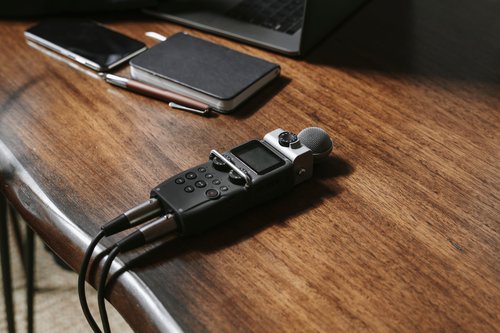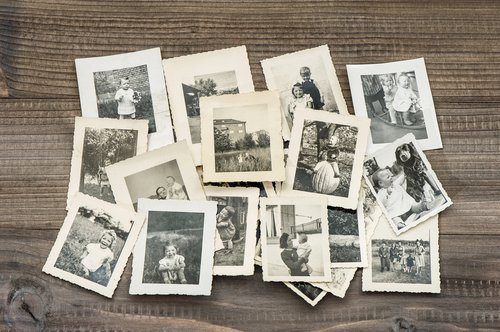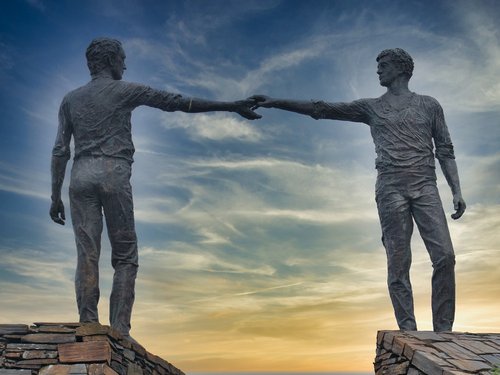We present below the audio recordings of the oral history interviews gathered during the project, together with a transcript and summary of each interview.
In total, we recruited seventy interviewees (thirty-four men and thirty-six women) of Northern Irish birth or heritage who lived, worked, studied or settled in our three chosen locations, before, during and after the period of the Troubles. Forty-nine of these interviewees were first-generation migrants who left Northern Ireland between the early 1960s and the early 2000s to build lives and careers in England and Scotland, where most of them still live. The other twenty-one can be classified as second generation, if we allow for the flexible usage of this term to describe those who were born in Britain to one or two Northern Irish-born parents, and those who were born in the North but moved to Britain in infancy or early childhood with their migrating parents and grew up there. Semi-structured life-history interviews, which varied in length from under sixty minutes to almost three hours, were conducted with each of our participants, the oldest of whom was born in 1941 and the youngest in 1995. The question schedule we devised was broadly chronological, loosely structured along a linear temporal line, with many of the questions being intentionally open-ended to allow interviewees the freedom to contextualise their life stories and shape their own testimonies. All but two of the interviews (one involving a husband and wife, the other a mother and son) were conducted on a one-to-one basis. Interviewing took place in person, either in participants’ homes or in public spaces, until the advent of the COVID-19 pandemic in March 2020, after which we switched to online interviewing.


When selecting participants, we sought to achieve diversity and variety in terms of age, regional origin, class background and social situation. We also aimed for approximate equivalence between people from Northern Ireland’s two dominant religious traditions, Protestantism and Catholicism, each of which has long been an indicator of one’s political, cultural and national allegiances, although it should be noted that many of our interviewees who had religious upbringings say they no longer practise their faith and several profess themselves to be agnostics or atheists. While we succeeded in recruiting a varied cohort, we make no claims about its representativeness in relation to the overall population of Northern Irish people in Great Britain, not only because of the smallness of our sample in relation to the size and variability of the larger whole, but also because we share Alessandro Portelli’s conviction that oral history ‘offers less a grid of standard experiences than a horizon of shared possibilities, real or imagined. The fact that these possibilities are hardly ever organised in tight, coherent patterns indicates that each person entertains, in each moment, multiple possible destinies, perceives different possibilities, and makes different choices from others in the same situation’. [1] It was therefore the complex, intertwined dynamics of subjective experience, memory production and identity construction, embedded in specific historical conditions and discursive contexts, that concerned us, dynamics that we believe are most profitably explored through in-depth textual analysis of individual life-history interviews.
The interviewers (Barry, Fearghus and Jack) sought to honour the particularity of each individual life story and its unique configuration within the setting of an intersubjective oral history interview, while at the same time soliciting interviewees’ responses to questions relating to our three interwoven research strands. The first of these strands focused on the relationship between ethnic-religious conflict and out-migration in post-1960 Northern Irish society by examining how social and political developments in the province shaped the causes and experiences of departure. The second strand investigated how the conflict-affected subjectivities and identities of first-generation Northern Irish migrants were challenged, consolidated or reworked through settlement and adaptation to life in England and Scotland, and in relation to the impacts and representations of the Troubles in British society more widely. The third strand explored how memories and narratives of the Troubles were transmitted and negotiated within families with at least one Northern Irish-born parent, and traced the effects of these intergenerational dynamics on the formation of second-generation subjectivity, identity and historical consciousness.

The interview recordings, transcripts and summaries are arranged by location below and are ordered chronologically under each location heading, beginning with the earliest interview (L01, M01 and G01) and ending with the final interview carried out in that location. The letters ‘SG’ are used to identify interviews with second-generation participants. These interviews are also numbered chronologically in relation to other second-generation interviews carried out in that location.
Clicking on each interview hyperlink below will take you to a page where you can listen to the interview audio and read the interview transcript, using the right-hand scrollbar. You will also see three blue buttons. Click on the first to see the interview metadata. Click on the second to download a full transcript of the interview. Click on the third to download an interview summary, which provides details of the content of each ten-minute segment of the interview.
Notes
[1] Alessandro Portelli, The Battle of Valle Giulia: Oral History and the Art of Dialogue (Madison: University of Wisconsin Press, 1997), p. 88



